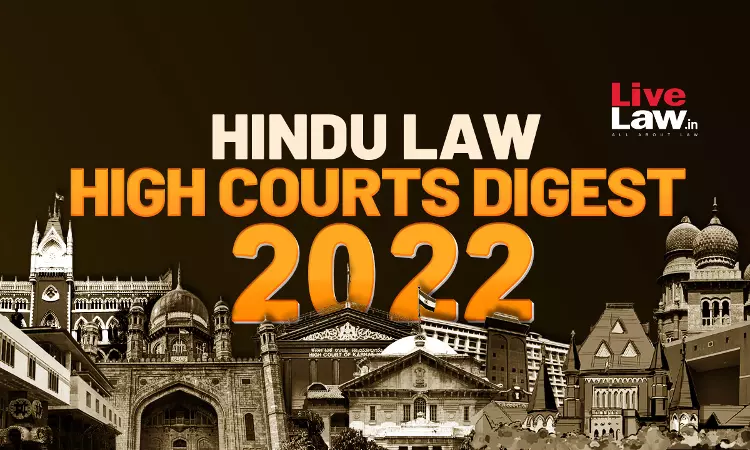- Home
- /
- Top Stories
- /
- Hindu Law: High Courts Digest 2022
Hindu Law: High Courts Digest 2022
LIVELAW NEWS NETWORK
11 Feb 2023 8:00 PM IST
LiveLaw brings to you the most awaited High Court Digest on Hindu personal law cases from the year 2022.Allahabad High Court"Marriage Certificate Not Necessary For Adopting A Child": Allahabad HC In Transgender Person's Plea Seeking Marriage RegistrationCase title - Rina Kinnar And Another v. State of U.P. and AnotherCase Citation: 2022 LiveLaw (AB) 55The High Court has observed that for...
Next Story



